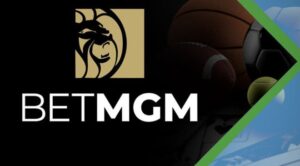Key Moments:
- Alberta’s launch date for an Ontario-style iGaming market remains undetermined, with expectations set for early next year
- Industry leaders indicate that other provinces are considering partnerships with Ontario’s AGCO to expedite regulated market rollouts
- Ontario’s market, with 50 licensed operators, reported a 4% month-over-month increase in wagers to CA $7.56 billion and applies a 20% tax rate
Outlook on Alberta’s iGaming Launch
The specific date for Alberta’s highly anticipated iGaming launch has yet to be announced. During the Canadian Gaming Summit in Toronto in June, Dale Nally, Minister of Service Alberta and Red Tape Reduction, stated the province is targeting “early next year” for a launch but did not provide firm details. Paul Burns, President and CEO of the Canadian Gaming Association, confirmed he has not received any updates on the timeline. “The province is continuing to do their work,” Burns said. “There are a few stages they need to work through, and there are no timelines to those stages. We are assisting them as best we can. We want them to get it right. As time ticks on regulatory standards will be shared, but we have to get more into the process to get a better idea of what timing is.”
Currently, Alberta’s iGaming and sports betting offerings are managed by the Alberta Gaming, Liquor & Cannabis (AGLC) through its Play Alberta digital platform. Under new legislation, Alberta is preparing to launch Alberta iGaming Corporation as its designated regulatory body.
The Canadian province of Alberta plans to launch its regulated online gambling market in early 2026
Shortly the provincial government will finalise advertising rules and tax rates, then private iGaming operators will be able to apply for licensing to legally enter the market. pic.twitter.com/jnzGtuvXtr
— Waterhouse VC (@WaterhouseVC) June 24, 2025
Potential for Provincial Partnerships with Ontario’s AGCO
The success of Ontario’s open, regulated market, initially launched in April 2022, has sparked interest among other provinces. Some industry sources suggest that instead of establishing new regulators, provinces could accelerate their market launches by choosing to partner with the Alcohol and Gaming Commission of Ontario (AGCO). A key motivator is the financial success Ontario has demonstrated, particularly given associated revenue uncertainties linked to U.S. trade tariffs.
One senior industry source told Casino.org it would not be surprising to soon see memorandums of understanding that enable other provinces to enter the market via the AGCO infrastructure. Benefits could include harmonized regulatory standards and new tax revenue streams.
Ontario’s Market Metrics
| Metric | Value |
|---|---|
| Licensed Operators | 50 |
| Month-over-Month Growth (July) | 4% |
| Total Wagers (July) | CA $7.56 billion |
| Tax Rate | 20% |
Regulatory Harmonization and Small Market Access
Discussions are increasingly focusing on shared regulatory frameworks as a practical solution for smaller provinces that may lack the resources to develop standalone regulators. Paul Burns noted, “It’s entirely possible… It really only takes will and courage on behalf of the provinces. But it also comes down to practicality, especially for smaller provinces. Regulated gaming is different in every province. So we start with the ability to look at igaming models, what would work for that jurisdiction, and how to regulate or oversee it. But we do need harmonized regulations and technical standards in Canada, making it easier to do business across the country.”
Such harmonization would not only lower business barriers but also expand access to innovative products and regulatory best practices nationwide. The model has historical precedent, evidenced by the approach taken for PlayNow, operated by the British Columbia Lottery Corporation and utilized as a commercial service by Manitoba and Saskatchewan.
Looking Ahead: Political Will and Industry Evolution
The prospect of adopting Ontario’s regulatory structures in other provinces hinges on both political determination and practical advantages. With the existence of universal standards like those provided by GLI for game technology, the path is open for provinces to consider similar regulatory outsourcing arrangements.
Paul Burns emphasized, “I think the time’s never been better to have these discussions. I think it’s a very real possibility. It should be considered. Why couldn’t this level of regulatory compliance extend to another government? It’s not for every province, but it could be for some.”
Recognizing the importance of expanding regulated iGaming access, stakeholders are advocating for evaluation of these partnership and harmonization models, particularly as smaller provinces seek to provide residents with reliable, regulated options.
- Author


